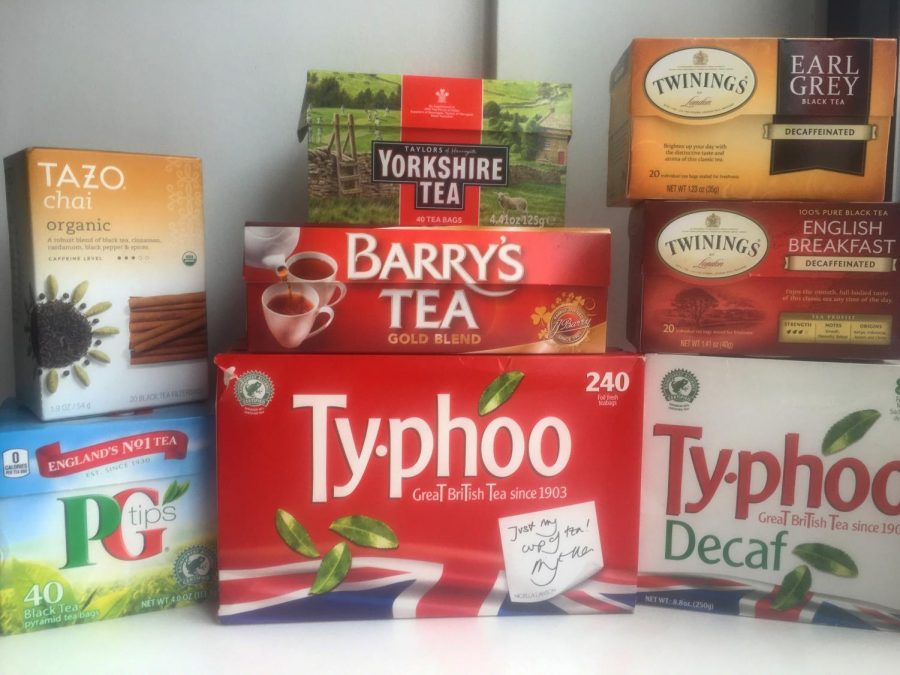Spilling the Tea on Tea
The tea collection of a student.
While coffee is often touted as an essential pillar of the Bronx Science lifestyle, there’s another source of caffeine that students have been turning towards: tea.
Tea has proven more popular than ever before, from colloquialisms like “spilling the tea” to the after-school favorite bubble tea. There are many benefits to drinking tea that deserve a closer look, and if you haven’t tried it yet, now could be the perfect time.
Recent scientific research has shown the powerful benefits of drinking tea. Herbal and green teas in particular have been shown to reduce stress, and even help with insomnia. In the high-pressure academic environment of Bronx Science, tea could be the quick and easy remedy for stress that students have been searching for.
“Tea always helps me calm down before a big exam,” said Madison Shimbo ’19. “Decaffeinated teas like chamomile or peppermint can also be really great if I’m ever having trouble sleeping.”
A recent graduate, Altin Gjonbalaj ’18, had a troubled relationship with caffeine during his time at Bronx Science. “The stress of my lifestyle as a Bronx Science student led me to my coffee addiction,” he said. “I was drinking 4 cups a day, and at some point I realized I needed to quit.”
For him, tea was a healthy alternative to coffee. His new habit has also helped him save money in college, as tea is one of the most inexpensive options at Binghamton University. He even plans to pick tea leaves himself in the mountains of Montenegro this summer. “My biggest piece of advice for Bronx Science students is to try tea,” Gjonbalaj said.
Drinking tea has helped some students reconnect with their roots, like Samiha Hossain ’19. “As someone who grew up in New York, I often feel disconnected from my culture, especially when talking to my grandma, who only speaks in Bengali,” she said. “I always wished that we were closer, but it’s hard holding conversations with someone when you constantly struggle to respond back to them.
“One day, she asked if I wanted to learn how to make tea the traditional way,” Hossain continued. “As she showed me how to make it, describing her steps as she went along, I didn’t have to respond back – just sitting and listening was fine. After she finished, we sat and drank the tea together, and I felt more connected to her than I ever had before. Now, I try to drink tea with her as often as I can, and sometimes even try making it myself.”
The stories of these students are echoed throughout the Bronx Science community. Whether you’re struggling with exam stress, caffeine addiction or generational disconnect, you might find that a humble cup of tea has an extraordinary power to many anything just a little bit better.
Jemma Lasswell is Editor-in-Chief and former Editorial Editor for ‘The Science Survey’ and an Athletics Section Reporter for ‘The Observatory.’...

